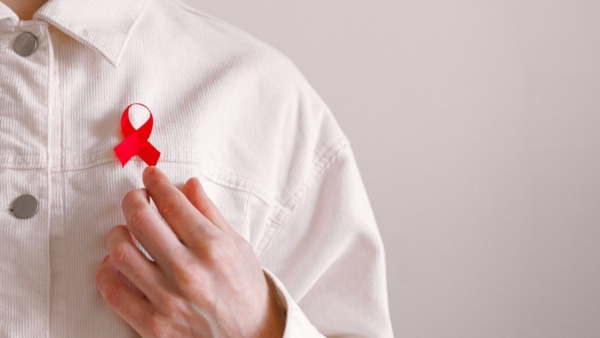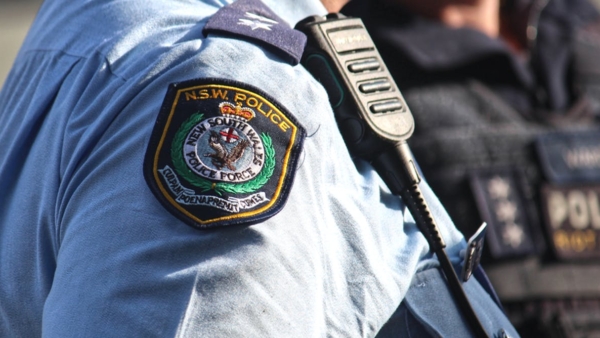Overview
New South Wales (NSW) does not have an HIV-specific law, but the general criminal law has been used to prosecute perceived HIV ‘exposure’ and alleged transmission.
All known HIV criminalisation cases in NSW have involved men accused of HIV transmission. A number of provisions have been used to prosecute these cases, including recklessly or intentionally causing bodily harm or wounding under the Crimes Act. The very first case (1991) related to a syringe attack, although the accused died before the case proceeded to trial. All of the other cases, excluding the 2020 case below, involved alleged transmission during sex during in which a condom was not used. Most of these cases have been prosecuted as causing grievous bodily harm, which carries a penalty of up to 14 years’ imprisonment for reckless conduct, and up to 25 years’ where there is intent.
Most recently, in February 2022, a man living with HIV was found not guilty for allegedly ‘exposing’ a sexual partner to HIV. The ruling followed the changes to the law in 2017 which, as stated above, removed an obligation to disclose HIV status prior to sex if ‘reasonable precautions’ are taken to prevent transmission, which includes wearing a condom. In this case, although the defendant did not disclose his status, he did wear a condom and HIV was not transmitted, as such there was no criminal offence committed.
The Public Health Act has provisions relating to HIV. It states that a person who has a notifiable disease (which includes HIV) must take ‘reasonable precautions’ to avoid placing others at risk. Guidance has defined these precautions to include:
- taking a prescribed antibiotic course for bacterial STIs; or
- use of a condom; or
- for HIV, having an HIV viral load of less than 200 copies/mL, usually resulting from being on effective treatment; or
- for HIV, seeking and receiving confirmation from a sexual partner that they are taking HIV pre-exposure prophylaxis.
The Public Health Act also makes it illegal for an owner or occupier of a building to allow a person living with HIV to engage in sex work in that building. Prior to reform in 2017, there was an obligation to disclose HIV status prior to sex.
The Mandatory Disease Testing Act 2021 also contains provisions relevant to people living with HIV. This statute was introduced in response to an April 2020 case, in which an HIV-positive man was charged with two counts of intimidating to cause fear and three counts of common assault after allegedly punching and biting security guards and spitting blood on a nurse. His HIV-status was included in a media report, however it is unclear whether the intimidating to cause fear charge related to his HIV-status or risks associated with COVID-19.
The NSW Government introduced a bill in 2020 that provided for mandatory testing of a person for blood-borne diseases, including HIV (as well as hepatitis B and hepatitis C), where they deliberately cause a health, emergency, or public sector worker to come into contact with their bodily fluid, including blood, faeces, saliva, and semen, thereby putting that person at a perceived risk of ‘exposure’ to contracting that disease. The order would require the person to submit to testing within two days, and while the test cannot generally be undertaken by force, there is an exception for detained people on whom reasonable force can be used to ensure compliance. Failure to comply with an order is a criminal offence, as is providing false or misleading information in this context, and both are liable to a fine and/or imprisonment for up to one year. The results of the test cannot be used as evidence in other criminal proceedings, meaning that a positive HIV test could not be used as the basis for a prosecution for offences under the general criminal law, such as causing bodily harm.
Despite being met with significant criticism, including from civil society and health officials who highlighted that there has not been any recorded occupational transmission of HIV for many years, the bill was adopted in 2021 as the Mandatory Disease Testing Act. In November 2023, the NSW Council of Civil Liberties made an appeal to the NSW Ombudsman to repeal the law on the basis that it was ineffective and stigmatising. Following a new report by the NSW Ombudsman which called into question the evidential basis for the law, civil society renewed their call for its repeal.
In May 2021, the NSW Attorney General said that the state would be adopting a new affirmative consent model, following the recommendations made by the NSW Law Reform Commission in a November 2020 report. Amongst these is a recommendation that the Crimes Act should state that ‘a person does not consent to sexual activity if the person participates in the sexual activity because the person is mistaken about the nature of the sexual activity’. It is not clear whether this could apply to people who do not disclose their HIV status prior to sexual intercourse. The bill, including this recommendation, was passed in November 2021 and received assent in December, becoming the Crimes Legislation Amendment (Sexual Consent Reforms) Act 2021.
NSW also has public health guidelines for the Management of people with HIV who risk Infecting Others. The public health provisions are managed by health department staff, ranging from supportive interventions at a clinical level to, if a person fails to follow directions, detention. These guidelines also refer to the National Guidelines for Managing HIV Transmission Risk Behaviours which state that the least coercive actions should be used first, aiming to place the person under the least restriction possible, and to de-escalate or discharge the person from management.
Laws
Crimes Act 1900
Section 33. Wounding or grievous bodily harm with intent
(1) Intent to cause grievous bodily harm
A person who-
(a) wounds any person, or
(b) causes grievous bodily harm to any person,
with intent to cause grievous bodily harm to that or any other person is guilty of an offence. Maximum penalty–Imprisonment for 25 years.
(2) Intent to resist arrest
A person who–
(a) wounds any person, or
(b) causes grievous bodily harm to any person,
with intent to resist or prevent his or her (or another person’s) lawful arrest or detention is guilty of an offence. Maximum penalty–Imprisonment for 25 years.
(3) Alternative verdict
If on the trial of a person charged with an offence against this section the jury is not satisfied that the offence is proven but is satisfied that the person has committed an offence against section 35, the jury may acquit the person of the offence charged and find the person guilty of an offence against section 35. The person is liable to punishment accordingly.
Section 35. Reckless grievous bodily harm or wounding
(1) Reckless grievous bodily harm–in company
A person who, in the company of another person or persons–
(a) causes grievous bodily harm to any person, and
(b) is reckless as to causing actual bodily harm to that or any other person,
is guilty of an offence. Maximum penalty–Imprisonment for 14 years.
(2) Reckless grievous bodily harm
A person who–
(a) causes grievous bodily harm to any person, and
(b) is reckless as to causing actual bodily harm to that or any other person,
is guilty of an offence. Maximum penalty–Imprisonment for 10 years.
(3) Reckless wounding–in company
A person who, in the company of another person or persons–
(a) wounds any person, and
(b) is reckless as to causing actual bodily harm to that or any other person,
is guilty of an offence. Maximum penalty–Imprisonment for 10 years.
(4) Reckless wounding
A person who–
(a) wounds any person, and
(b) is reckless as to causing actual bodily harm to that or any other person,
is guilty of an offence. Maximum penalty–Imprisonment for 7 years.
(5) Alternative verdict
If on the trial of a person charged with an offence against any subsection of this section the jury is not satisfied that the offence is proven but is satisfied that the person has committed an offence against any other subsection of this section (that carries a lesser maximum penalty), the jury may acquit the person of the offence charged and find the person guilty of an offence against that other subsection. The person is liable to punishment accordingly.
Section 54. Causing grievous bodily harm
Whosoever by any unlawful or negligent act, or omission, causes grievous bodily harm to any person, shall be liable to imprisonment for two years.
Public Health Act 2010
Section 79. Duties of persons in relation to sexually transmissible diseases or conditions
(1) A person who knows that he or she has a notifiable disease, or a scheduled medical condition, that is sexually transmissible is required to take reasonable precautions against spreading the disease or condition.
Maximum penalty: 100 penalty units or imprisonment for 6 months, or both.
(2) An owner or occupier of a building or place who knowingly permits another person to have sexual intercourse in contravention of subsection (1) at the building or place for the purpose of prostitution is guilty of an offence.
Maximum penalty: 100 penalty units or imprisonment for 6 months, or both.
(3) A person (other than a member of the NSW Health Service) must notify the Secretary if the person commences proceedings against a person for an offence under this section.
Mandatory Disease Testing Act 2021
Section 8. Application for mandatory testing order
(1) A worker may apply for a mandatory testing order in relation to a person (the third party) if—
(a) the worker has come into contact with the bodily fluid of the third party, and (b) the contact occurred—
(i) in the execution of the worker’s duty, and
(ii) as a result of a deliberate action of the third party, and
(iii) without the consent of the worker.
Section 27. Failure to comply with mandatory testing order
(1) A third party in relation to whom a mandatory testing order is made must comply with the order.
Maximum penalty—100 penalty units or imprisonment for 12 months, or both.
(2) It is a defence to a prosecution for an offence under this section if the third party proves that the third party had a reasonable excuse.
(…)
Section 28. False or misleading information
A worker or third party who gives information to a senior officer or other person exercising functions under this Act, knowing that the information is false or misleading in a material particular, is guilty of an offence.
Maximum penalty—100 penalty units or imprisonment for 12 months, or both.
Acknowledgements
Our thanks to Australian law firm Hall & Wilcox for their research assistance to confirm current relevant legislation.










